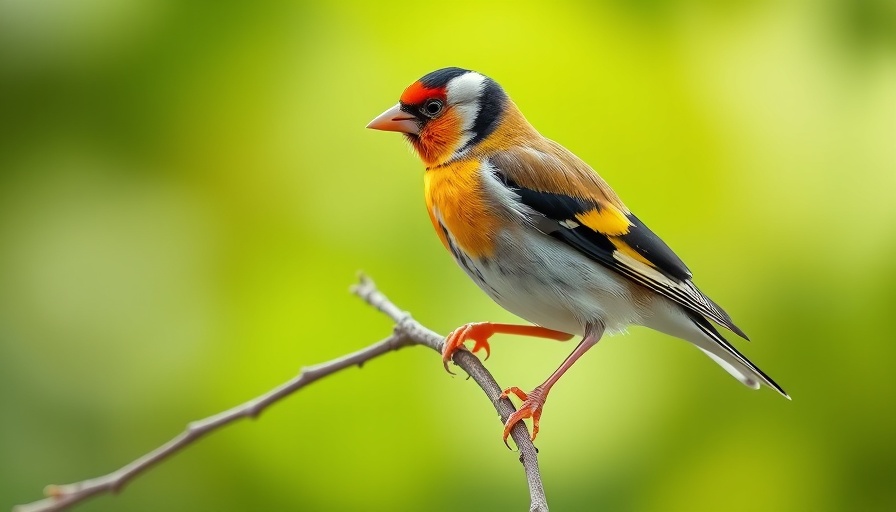
Eradicating Illegal Bird Killings: A Persistent Challenge for Conservation
Despite a comprehensive commitment to reducing illegal bird killings by 50% by 2030, a recent report reveals that many countries are lagging significantly behind in their goals. Published by BirdLife International and EuroNatur, the Killing 3.0 report highlights alarming trends across Europe, Africa, and the Middle East, where 83% of the 46 countries analyzed are on track to miss their targets.
The Urgency of the Situation
As Barend van Gemerden, Global Flyways Programme Coordinator at BirdLife International, notes, the illegal killing of birds not only constitutes a crime but poses an ongoing threat to migratory bird populations across entire ecosystems. The consequences of high illegal killing rates in one nation can undo conservation victories in another. Citing endangered species such as the European turtle dove and the Egyptian vulture, the report emphasizes that we need more robust international cooperation to address this issue effectively.
Data Revelation: The Numbers Behind the Tragedy
The report's findings are startling; studies indicate that 38% of deaths among large migratory landbirds are attributable to illegal killings—many of which occur due to poisonings or shooting. Millions of birds are lost annually across Europe and the Mediterranean, as communities grapple with ineffective prevention strategies.
Illustrating Success: How Some Nations Are Leading the Way
Encouragingly, the report also identifies success stories that could serve as templates for other nations. The British Eastern Sovereign Base Area in Cyprus achieved a remarkable 90% reduction in illegal bird trapping by 2023. Similarly, Spain has made strides against illegal bird killings, enjoying a 62% reduction between 2019 and 2021 largely due to focused efforts against wildlife poisonings. These examples of success illustrate that with dedicated action, significant reductions in illegal killings are achievable.
Pathways to Improvement: Recommendations for Change
To improve the dire situation, several actionable steps have been recommended for countries lagging in their reduction efforts. Developing national action plans, forming dedicated task forces, and enhancing international collaboration could lead to improved outcomes. The report also underscores the necessity of establishing penalties for illegal killings to create more effective deterrents. Raising public awareness about the importance of bird conservation is vital, particularly in regions where local communities may not fully grasp the ecological significance of these species.
Engaging the Hospitality Sector: A Call for Eco-Conscious Action
For boutique hospitality professionals, this report serves as a crucial reminder of the broader implications of environmental sustainability. Guests today prioritize eco-conscious practices, and aligning your business processes with these conservation efforts can foster a more responsible tourism model. From engaging in sustainable gardening techniques to creating awareness around wildlife conservation, there are many ways hospitality professionals can contribute to the protection of local bird populations.
Additionally, incorporating sustainable practices such as avoiding microplastics and other harmful pollutants can significantly contribute to healthier ecosystems. Establishing nature reserves and promoting biodiversity, even in urban settings, can further enhance the guest experience while benefiting the environment.
Future Trends: The Need for Ongoing Advocacy
The illegal killing of birds is a complex issue intertwined with local cultural practices, economic pressures, and clashing interests. Movements advocating for the protection of endangered species must continue to raise awareness and push for change. The hospitality sector, particularly, has a unique opportunity to use its platform not just for profit but for positive environmental action.
As we approach 2030, it is vital that countries not meeting their targets recognize the urgency of the situation. Through concerted efforts, both locally and internationally, the significant tragedy of illegal bird killings can be mitigated, helping to preserve various bird species for future generations.
Conclusion: Becoming Eco-Conscious Hosts
As stakeholders in the hospitality industry, we can make a difference. View this report as your opportunity to engage in meaningful conservation efforts. Consider aligning your sustainability initiatives with cutting-edge conservation practices to protect bird populations. By doing so, you’re not only enhancing your brand's reputation but also contributing to a healthier planet.
 Add Row
Add Row  Add
Add 




 Add Row
Add Row  Add
Add 

Write A Comment